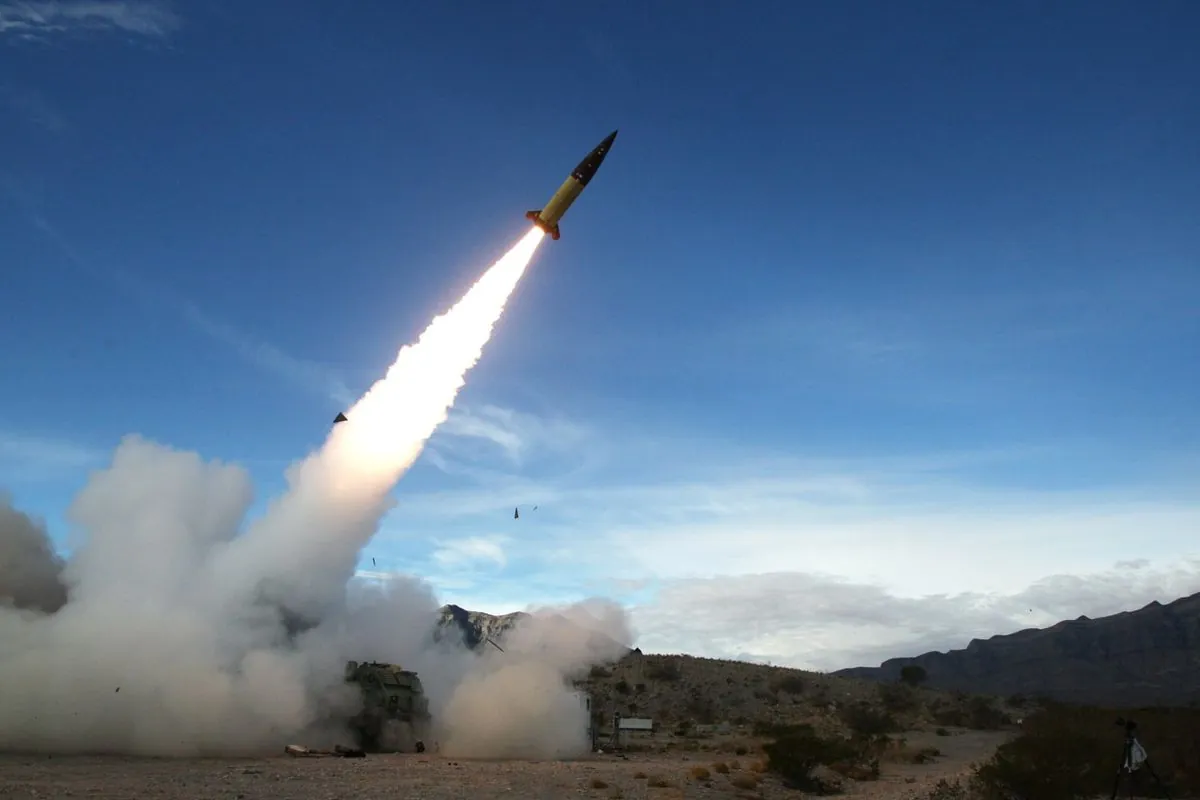Ukraine Seeks Western Approval for Long-Range Strikes on Russian Soil
Ukraine requests permission to use Western-provided missiles for strikes inside Russia, citing strategic necessity. Western allies remain cautious due to potential escalation with nuclear-armed Russia.

As the conflict in Ukraine approaches its third year, Kyiv is intensifying efforts to obtain authorization from Western allies to employ long-range missiles for strikes within Russian territory. This request comes as Ukrainian forces face increasing pressure from Russian advances in the eastern regions.
Ukrainian officials argue that these weapons are crucial for diminishing Russia's ability to launch attacks on Ukraine and forcing the relocation of its strike capabilities further from the border. However, Moscow has issued stern warnings, stating that permitting such long-range strikes would be considered an act of war.
The issue is expected to be a key topic in upcoming high-level diplomatic meetings. On September 13, 2024, President Joe Biden is scheduled to meet with British Prime Minister Keir Starmer at the White House, with a potential meeting between Biden and Ukrainian President Volodymyr Zelenskyy anticipated later in the month.
The long-range missiles in question include:
- Storm Shadow (British-led)
- SCALP (French-made)
- Army Tactical Missile System (ATACMS, U.S.-made)
These weapons offer greater precision and destructive capacity compared to Ukraine's domestically developed long-range drones, which have already demonstrated the ability to strike targets deep within Russian territory.

Ukraine views the potential use of these missiles behind enemy lines as a game-changer, enabling strikes on air bases, supply depots, and communication centers hundreds of kilometers inside Russian borders. Kyiv argues that this capability would help reduce Russia's air superiority and weaken supply lines essential for sustaining its military offensive.
"I hope allies will make strong decisions when we meet later this month."
Western allies, while supporting Ukraine with weapons, training, and financial aid, are cautious about directly confronting Russia. The United States and other NATO members are trying to maintain a delicate balance in their support for Ukraine.
U.S. Defense Secretary Lloyd Austin recently met with Zelenskyy and appeared hesitant towards Kyiv's request. The Pentagon spokesperson, Lt. Col. Charlie Dietz, noted that ATACMs would not effectively counter the main threat Ukraine faces from long-range Russian-fired glide bombs, which are launched from beyond the ATACMS' reach.
As winter approaches and potentially slows Russian advances, long-range air strike capabilities are becoming a higher priority for Ukraine. Kyiv aims to regain the offensive initiative to offset military manpower shortages and protect its damaged power infrastructure.
The Kremlin has repeatedly emphasized that the use of Western missiles on Russian territory would cross a red line, a warning reiterated by Russian President Vladimir Putin this week. However, Ukraine points to its recent five-week incursion into Russia's Kursk border region as evidence that it has already defied Russia's red lines.
As diplomatic discussions continue, the international community watches closely to see how Western allies will balance Ukraine's strategic needs with the risk of further escalation in this protracted conflict.


































